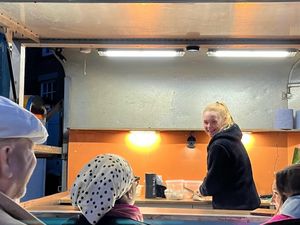BBC jobs to go and shows shaken-up as part of plan to save £25 million
The BBC has announced plans to cut around 450 jobs across England, including many at the Mailbox in Birmingham.

Inside Out, the local BBC current affairs programme is being axed.
And 33 of 36 jobs are to go at BBC England’s Birmingham-based online hub, which houses sub-editors that manage and publish much of the copy written by local reporters in regional offices.
The broadcaster said that BBC England must save £25 million by the end of March 2022.
BBC England is the home of the corporation’s local radio stations and regional TV news, and according to the BBC will “undergo a significant reinvention”.
Changes made mean a simplified structure of programmes introduced on BBC local radio during lockdown will remain in place. It will mean an end to breakfast shows involving two presenters, with Daz Hale possibly remaining as the sole BBC WM presenter in the mornings and Eric Smith at Radio Shropshire.
The BBC says it plans to improve its political output outside Westminster, including by reinvigorating its 11 regional Sunday Politics programmes. It said the programmes will “undergo editorial and creative changes to ensure they have more impact and reach a broader audience”.
It also plans to pilot two new digital political programmes, with one based in the Midlands, which will be available on streaming services iPlayer and BBC Sounds.
Separate
Midlands Today, which is produced at The Mailbox, and will continue, although in some regions of England the number of presenters will be cut.
BBC staff in Birmingham were told about the job losses via Zoom meetings today. One based at the Mailbox tweeted that he read about the redundancies on a media website as he was starting the meeting.
The cuts are separate to the plans to cut 450 jobs at BBC News, which were outlined earlier this year but put on hold at the start of the Covid-19 crisis. Last month outgoing director-general Lord Tony Hall launched a programme of voluntary redundancy across the BBC.
The BBC already had an £800 million savings target before the coronavirus pandemic led to an additional £125 million deficit.
Helen Thomas, director of BBC England, said: “I’m proud people have turned to us for trusted news and information in huge numbers during Covid-19, proving the importance of our local services.
“But those services were created more than 50 years ago, have changed little and need significant reinvention. That has meant taking difficult decisions. We are in the age of the Facebook community group and the WhatsApp neighbourhood chat. We must adapt to better reflect how people live their lives, how they get their news and what content they want.”





